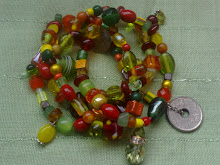I was doing some research for work today on equality in sports participation and one of the most striking findings I came across was the lack of participation of Muslim women in Sports. Quite a few of the research reports and studies had attempted to gauge the reasons why Muslim women did not participate in sports, both at a personal and competitive level. Some of the reasons were spot on, others were missed out, many I think because people don’t like to talk about them. I think this is an issue we should make our voices heard on, so I have listed some of the reason’s I think Muslim women don’t participate in sports and physical education:
1. Many of us have had a bad experience of Physical Education (PE) in school. PE teachers who just had no idea what our needs were and who were not willing to be flexible. Some of the reports touched on this, but did not give reasons as to what those negative experiences were.
2. One of these was dress. Having been raise to cover my arms and legs, then having to wear a swimming costume or shorts or even shorter PE skirt was a no-no. So even with a jogging bottom, I still had to wear a half-sleeved t-shirt which I didn’t like.
3. Which leads to teenagers and body hair - embarrassing I know, but these are the things that no-one talks about and so PE teachers and coaches can’t be considerate of. When most people reach teenage, they have a fine down of blonde hair on their arms and legs which no-one really notices. When Muslim (actually read Asian) girls hit teenage, you get fair-ish skin with a layer of dark, very visible hair. This is usually at an age before they learn about the technicalities of shaving/waxing and so exposing arms and legs can be utterly excruciating for that awkward year or two.
4. Staying on embarrassing topics, periods is again something that affects everyone. However, Muslim girls prefer not to use tampons as they have anxieties about them breaking the hymen. So swimming is a no during this time of the month. I remember bunking off numerous swimming lessons, despite being a good girl at school and knowing I would be caught because the PE teacher just did not understand this issue.
5. Mixed-gender lessons. We were still doing swimming with the boys until about the second or third year of high school (about age 12-13). After this the girls were split, but the life-guard was a man. Hence the bunking. Not all, but many Muslim women feel more comfortable in a women only environment, especially if they have removed their abayah or headscarf for the occasion.
6. Lack of support at home. Even where Muslim girls are keen on sports (again read Asian girls mostly), parents are not always supportive. The way many parents used to think when I was younger was that what was the point of doing a sport if it wasn’t going to help you become a doctor, lawyer or get married. Especially if it was going to cost you money or mean you would be away from home in the evenings or overnight.
7. Timing of sports practice and events. Many sports lessons or practice sessions happen in the evening when Muslim children are often having their Islamic or Quran studies. These can last between 30 minutes to two hours and don’t leave much time for other activities. Many sports events and competitions happen away from home and mean participants have to travel. Parents don’t always like their daughters staying out in the evening or staying elsewhere overnight. There is the worry as to who they will be mixing with and what they will be doing. This lack of permission for some young girls severely curtails their opportunities to participate and even means young women avoid bothering with extra-curricular and competitive sports altogether – they know there is no point in getting involved, when they won’t get permission to pursue it further.
Fortunately, generations younger than mine are seeing some change. Most schools allow hijab and modest dress for PE now. There are modest options available, like the burkini. We have lots of amazing role models coming through (Ruqaya Al Ghasara, Ambreen Sadiq, Sara Khoshjamal-Fekri, Bilqis Abdul-Qaadir). Parents are starting to understand the importance of physical education and sports participation to a healthy body and long-term lifestyle.
Interestingly, one study found that people’s views on sport were affected by whether they identified themselves by their culture or religion:
Many Muslim women are constrained by their ethnic backgrounds from participating in sport. For example, research conducted by the WSFF on Bangladeshi women found that they led sedentary lives with little priority given to exercise and physical activity, as it conflicted with their role as a mother and homemaker. Asian cultural ideologies do not always promote exercise and physical activity for women, although many of the women in the research understood its significance for health. A study in Norway showed that Muslim women who identified themselves in terms of their ethnicity were not interested in participating in sport as it challenged the boundaries of femininity and cultural identity. Those who regarded religion as a source of identification, viewed physical activity positively as it was in line with Islam’s stance on health.
This is consistent with the Islamic view that our bodies are an Amanah or trust from Allah (SWT) that must be looked after. I hope that listing some of the reason’s Muslim girls and women tend to participate in sports less will lead to some understanding on the part of sport and PE providers, but particularly parents. One generation of confused, extremely embarrassed and not very sporty teenage girls is enough I think.
Subscribe to:
Post Comments (Atom)































such EXCELLENT points. I think I can relate to most of them, and the ones I can't understand because here in Canada we don't have mandatory swimming, I've heard about from my sisters-in-law who grew up in the UK.
ReplyDeleteInsha Allah, as a new generation of Muslim mothers raising our daughters in the west, we will be able to help them work out some, if not all, the challenges of physical activity and atheleticism.
I just want to point out that many of our mothers and grandmothers grew up in agrarian cultures where they would get their fair share of physical activity without ever participating in an organized sport. My MIL speaks with fondness about climbing trees as a girl (and long afterwards) and swimming in the river while her mother washed clothes. My own mother lived on a farm where the heavy manual labours kept them moving all the time. This kind of shift between rural and urban lifestyles affects more than just asian cultures, and as even European and North American cultures are changing and becoming more sedentary, they might have failed to notice the unique factors affecting Asian and Muslim girls in particular.
Thanks for posting this!
Very nice article !
ReplyDeleteI can relate to what Asiya said about the lifestyle of previous generations of muslim women. My mother-in-law for instance used to work very hard at the family farm in Morocco. There was no televion, no washing machine, no vacuum cleaner, ... . Women who grow up in these circumstances have much more physical activity than housewifes in the West. My sister in law calls my bread machine "the second wife" in our household not to mention the washing machine, ... .
Noticing this I think that muslim parents did not understand the importance of sports for their daughters. And of course there was also the issue of dress and mixed genders as you mentioned, umm Salihah.
But alhamdulilah, things are changing (at least here in Belgium) ...
Umm Siham ;)
Excellent issues raised here. That is not to say that there havent been ways to tackle this (eg. Burkinis for full coverage, more emphasis on women only classese, learning sessions for older women etc) but because its such an overlooked subject, this definitely needs m=some more light shed on it.
ReplyDeleteAs-Salaamu 'alaikum,
ReplyDeleteIt seems quite odd that PE teachers would not be sensitive to the needs of young girls when they have their periods. Traditionally most would, in fact, allow a girl to sit out games (particularly swimming) for that reason, at least for one week at a time (and it should be at most two, as it's logically possible for an 8- or 9-day period to include two consecutive PE days, but some PE teachers, including female ones it seems, don't understand this). Many girls, perhaps most, don't use tampons when they first start, often because they cannot insert them and also because pads are simpler to use, and it seems that the popularity of tampons has gone down generally since the 1980s due to Toxic Shock Syndrome and the availability of less bulky pads. Not to mention that the girl may be in pain anyway and physically not up to running around. If a PE teacher is not excusing girls for that reason, parents should complain forcefully.
Also, surely the issue with the hymen and virginity is specific to (some) Muslims of Asian or other immigrant backgrounds. That taboo was broken among white people years ago, because it is well-known that the hymen can break for other reasons than penetration. So a girl who has a convert parent is unlikely to regard that as an issue.
Assalam-alaikam,
ReplyDeleteI don't know hown things are now, but I recall my female PE teacher lambasting the class and warning us that there is no way girls were going to miss PE lessons because they were on their period as that would mean missing 25% of their lessons.
This is one reason I would consider becoming a school governer and encourage other Muslim parents to do so, to deal with teachers and attitudes like this (If my daughter complained about a teacher like this, that teacher would not know whats hit them).
thanks for sharing. this article is very helpful and very useful
ReplyDeleteAssalamu aleykum,
ReplyDeleteReading this made me wonder if there are any other sisters out there that ride horses. It is one of the sunnah sports and I love it sooo much!